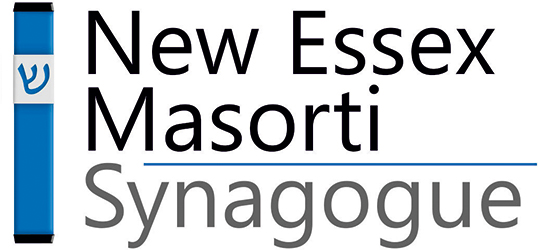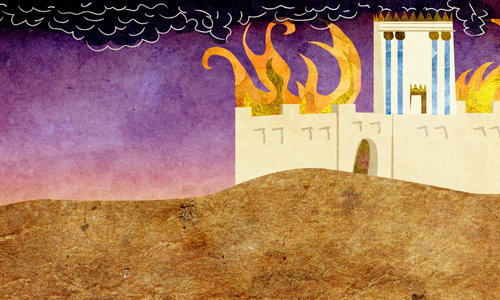NEMS member and regular contributing writer for the Essex Jewish News, Renee Bravo, discusses the traditions and meaning of Tisha B’Av and the relevance it still has for our community today:
Wednesday 29th July 2020 is Tisha B’Av, which commemorates the destruction of the Temple in Jerusalem many centuries ago. There are many different customs for emphasising the sadness of the day. In the synagogue we sit on low stools, and read by candlelight; the embroidered ark curtain is replaced by a plain, black one; the prayers are chanted to a special melancholy tune; we are told to abstain from sex and Torah study, anything which gives pleasure, an so on. We read the Book of Lamentations, full of sadness and despair.
At that time, the temple was the centre of Jewish life, and its destruction could have led to the end of Judaism, so the rabbis had to find a way of preserving it. Very cleverly, they transferred the core of Jewish life from the temple to the home, and over the years this has become a favourite subject for rabbinic homily. The Jewish home was likened to the temple, and the family table to an altar, with the mother as the High Priest. So this week we are lamenting the destruction of the temple in Jerusalem thousands of years ago. But if today’s temple is the Jewish home, should we be, perhaps lamenting its destruction? However rose-tinted are our spectacles, we cannot fail to see the signs of it. But can we do anything to prevent it? I believe we can, and the key lies with the High Priest of our modern temple, the woman. By investing women with the honour given to the priests, by putting into her hands the custody of the appurtenances, by spreading her love over the community, just as the High Priest of old was commanded to bless the people with love, the Jewish people can be saved. I realise that this might be hard for some people to visualise, but those ancient rabbis had to make a similarly difficult decision, a sea-change in the thinking and practice of their times. But they were perceptive enough to see that the alternative was the disintegration of Judaism as they knew it, and they had to find another way. We bless and thank them for their courageous and ground-breaking actions.
Today we are in a similarly sad and desperate situation. Out temple, the Jewish home, is under threat. Can we dare to hope that there are rabbis today with the same sort of courage, to look reality in the face, and act according to the needs of the time. In the Haftorah which we read on Tisha B’Av, Jeremiah says, “Hear the word of the Lord, ye women. Let your ear pay attention to his words. Teach your daughters”. Jeremiah was a prophet, and these are prophetic words. I believe that only by bringing women into religious life, by teaching our daughters, can we hope to prevent the destruction of our modern temple, the Jewish home. We must fight to ensure that not only are women brought into religious life, but that men recognise their need for religious fulfilment. And we must fight to ensure that the religious education of girls is given the same importance as that of boys. And we must fight to change the laws of divorce, so that women do not see Judaism as a vehicle of injustice. And don’t tell me that ‘Halachah cannot be changed’. I could write pages listing all the changes which have taken place over the years. One of the central planks of Judaism today, that only a child born to a Jewish mother is really Jewish, is itself a change in Halachah. In biblical times descent was through the male line, but after the destruction of the Temple, when so many Jewish women were taken into slavery, and subject to rape, that the rabbis decreed that any child born to a Jewish mother would be considered Jewish, in order to preserve the Jewish people.
The Jewish home, is disintegrating before our eyes. We must not sit complacently and hope that if we only keep things as they are, all will be well. It will not. We have to fight for it, and as in any battle, there will be casualties. Things that have always been will no longer be. Things that may be distasteful will have to be endured. Only by facing reality, by grasping the nettle of new challenges, can we preserve our temple, the cornerstone of Jewish life, the Jewish home. There are glimmers of hope on the horizon. All over the Jewish world there is a burgeoning of learning among women, especially among orthodox women. It is as though a dam has burst, and women are finding that they can swim.
We are told that the Jewish people were rescued from Egypt because of the piety, steadfastness and commitment of the women. I believe that the Jewish people of our time will be rescued from the sea of assimilation and apathy by the involvement of women, and that our modern temple, the Jewish home, will be rebuilt in our time.
RENEE BRAVO.

